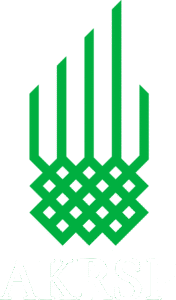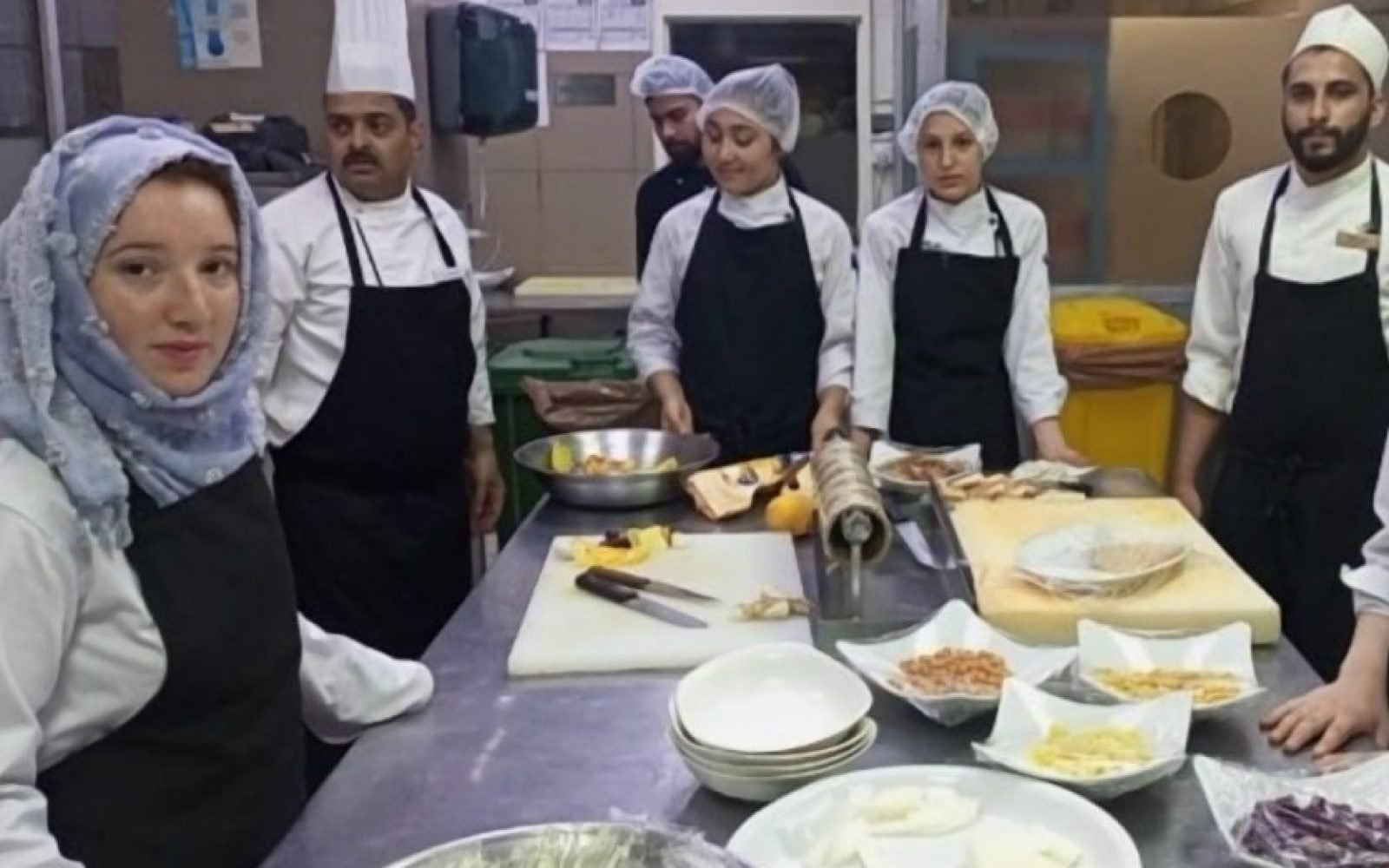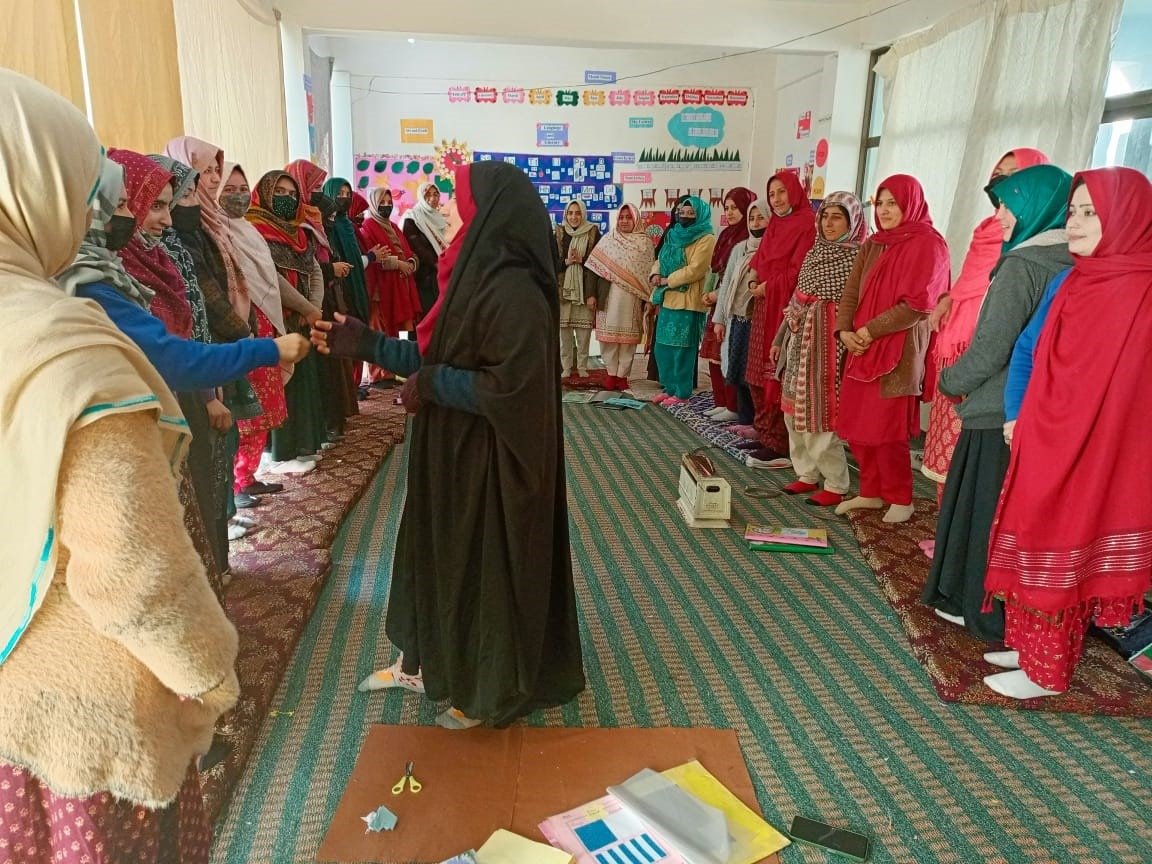By Fouzia Qazi, Programme Manager Works & Enterprise
Employer-led training is emerging as a game-changer in today’s workforce development. Unlike traditional classroom learning, hands-on experience offers invaluable practical skills as Usman Chaudhary, owner of Indus Lodges in Gilgit and one of AKRSP’s Future of Work (FoW) initiative partners, explains:
“On-the-job training gives trainees the chance to apply what they’ve learned in real-time, helping them build confidence and preparing them for independent work.”
However, the true success of this model lies in the strong partnerships it fosters—between employers, trainees, and facilitating organisations like AKRSP. These collaborations ensure that the training provided is not only meaningful but also aligned with market demands. As a result, employers commit to hiring a percentage of the trained youth, creating a sustainable pathway for future employment.
The benefits of employer-led training are not just theoretical—they are evident in the success stories of trainees who have gained hands-on experience and secured jobs. Take Kulsoom Sajjad, for example, a graduate of the training program at Avari Xpress Hotel in Gilgit, another key partner. “Before starting, I was nervous about interacting with guests. But the front desk training helped me develop my communication skills and taught me the importance of excellent customer service. Now, I genuinely enjoy welcoming guests and assisting them. This hands-on experience has made all the difference—it gave me the confidence to pursue a career in hospitality.”
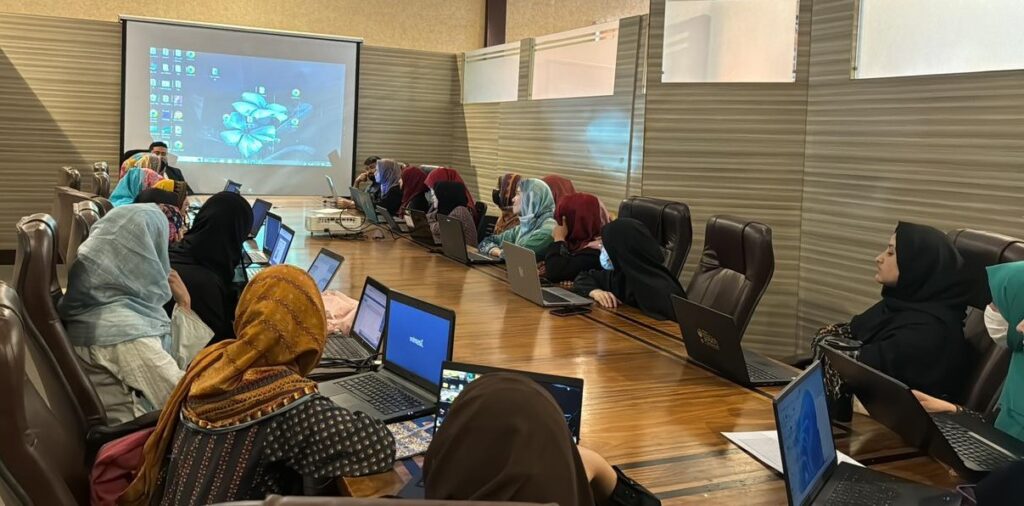
A Vision for the Future of Work (FoW)
Through the BEST4WEER project, funded by Canada, AKRSP is equipping young women and men in Gilgit-Baltistan and Chitral with high-demand skills in fields such as IT, hospitality, healthcare, and early childhood development. This initiative is part of AKRSP’s Future of Work (FoW) programme, which includes apprenticeships, fellowships, internships, and job placements. With support from key employers, including Aga Khan University Hospital, Serena Hotels, HBL, and other local and national level partner businesses the programme has already benefited 829 young men and women.
The core strength of the employer-led training model lies in its direct alignment with the employment market’s needs. By focusing on the “demand side” of the workforce equation—the specific needs of employers—this approach ensures that training is both relevant and sustainable. It also helps ensure that young people are not only prepared for their chosen industries but are also highly employable.
The foundation for addressing both demand and supply dynamics lies in the various national and regional Coalitions of Employers (COEs) conventions conducted across Gilgit-Baltistan and Chitral (GBC). These COEs represent informal alliances aimed at securing employers’ commitments to advancing gender equality and inclusion in training, apprenticeships, internships, and employment opportunities. These commitments form the cornerstone of the “demand side,” enabling targeted strategies to address the “supply side” effectively.
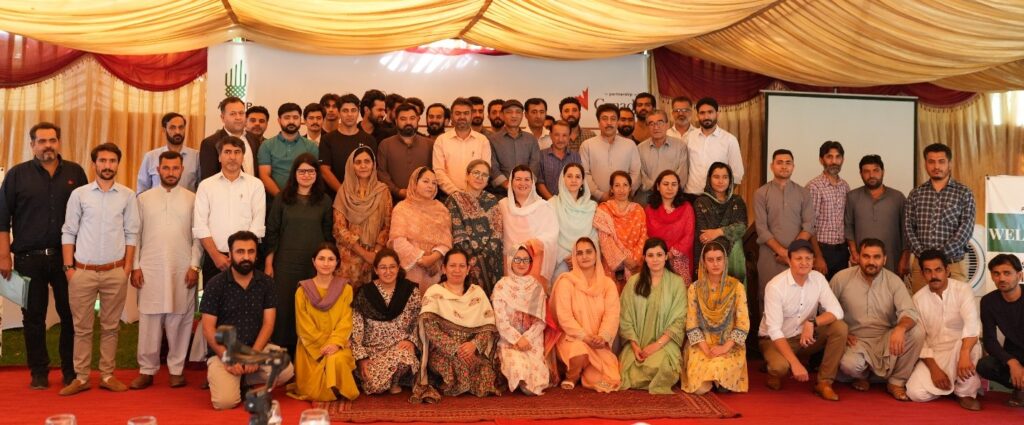
Real-Life Examples of Success
For instance, 30 out of 40 trainees at Indus Lodges have been hired across different facilities, which highlights how effectively this model works in practice. Others have gone on to explore entrepreneurial opportunities through AKRSP’s START-Apna Karobar programme and other initiatives.
Like Kulsoom Sajjas, the success story of Anika Bashir, a young tech trainee underscores the importance of live projects and mentorship in her development:
“In the tech field, I worked on real projects with my supervisors, which helped me build both my knowledge and confidence. After three months of training, I realised that theoretical learning alone wouldn’t have prepared me as well as this practical experience.”
Today, Anika is a confident graphic designer, employed by the same tech company where she completed her employer-led training.
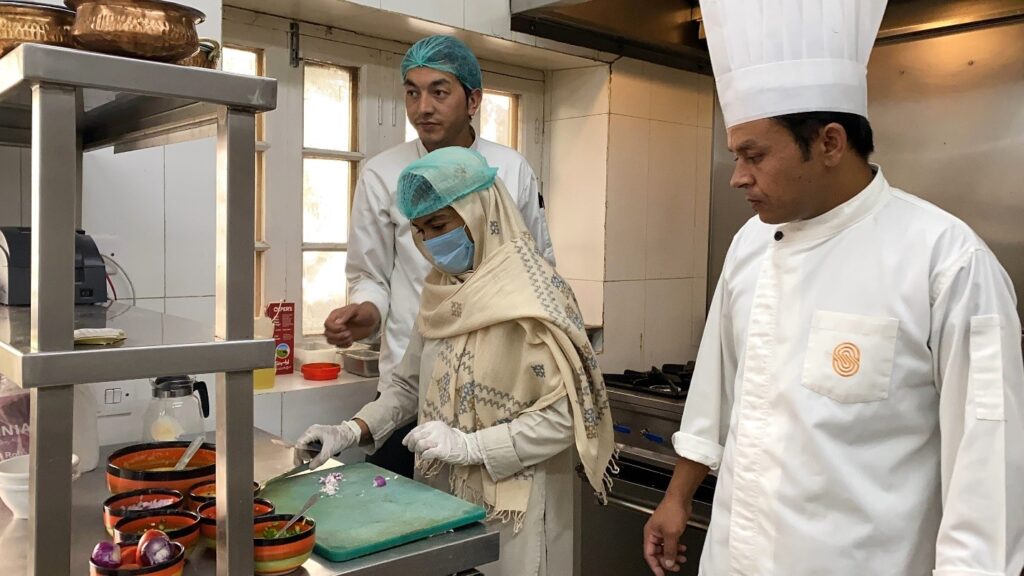
A Sustainable Approach to Workforce Development
Employers, such as Tanveer Ahmed, Facility Manager at Pamir Inn in Chitral, recognise the value of this model as well:
“This model goes beyond traditional training by giving trainees the opportunity to work alongside experienced professionals. This not only boosts their confidence but also helps them understand the practical skills needed for their careers.”
The employer-led training model is more than just a method to acquire skills—it’s a vital strategy for addressing skills gaps and creating long-term career opportunities. By directly connecting training with the demands of the labour market, AKRSP’s Future of Work initiative is not only preparing youth for today’s job market but also building a workforce that is ready for the future.
